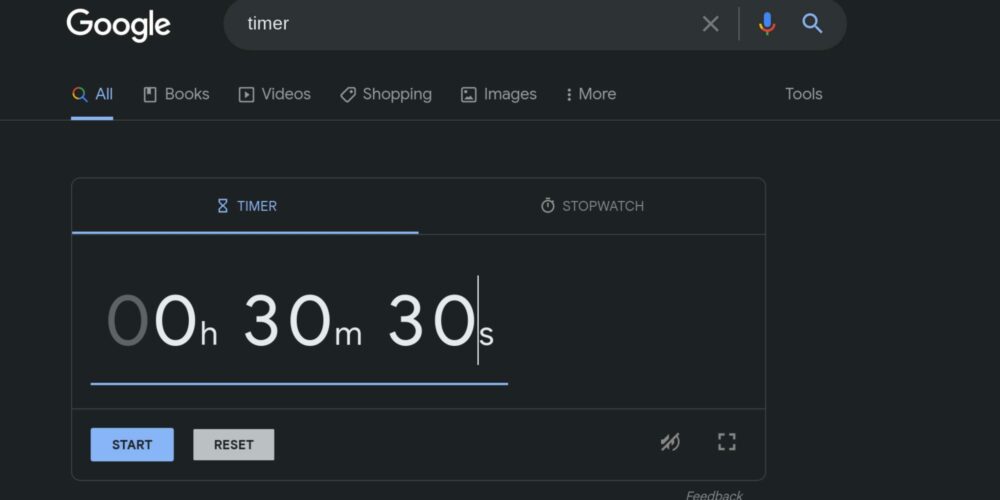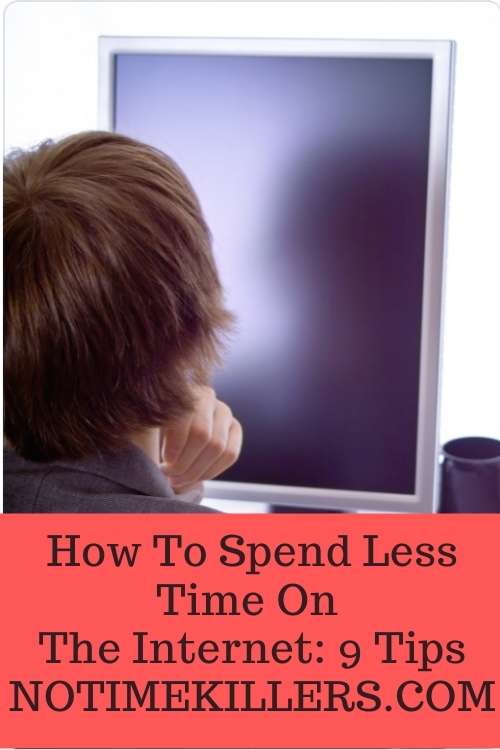These days, more people are spending more time online than ever. The internet has become one of mankind’s greatest advances. It’s provided so many opportunities for people to communicate and work/collaborate online. However, some people may spend too much time where it can impact their health. Knowing how to spend less time on the internet is the key to feeling more focused and feeling happier. In this article, we’ll look at how to do that.
The negative effects of spending too much time on the internet
Spending too much time online is not good for anyone. The health effects can be detrimental if someone went too far; for the most part, people may experience mild effects from spending too much time.
Some of the mental health effects include the following:
- Anxiety & depression
- Isolation
- Fewer in-person interactions
- Feeling guilty
Also, some of the physical effects someone may experience include:
- Headaches
- Weight gain
- Dry eyes (visual strain from staring at a computer screen for too long)
Regarding this topic, there was a study conducted several years ago about peoples’ time spent online. Based on the study, the participants were spending more time online than they did in the past.

There were other things laid out in the study, such as cybercrime, use of social media, and internet addiction. But the main point to take away was the increased time spent online.
That trend has likely increased today and is unlikely to go away anytime soon. For the better or worse, it’s a reality that society has to work with.
For the remainder of this post, I will lay out some best practices for spending less time on the internet. Some of them may make sense, while others may be challenging. But it’s worth trying if you want to create better habits.
Use a timer (every time)
It may not be the most exciting thing to have on hand; however, it can help monitor your time and not get off track. Without having a timer, it’s possible you can go down a rabbit hole and get easily distracted.
For example, if you’re switching back and forth between social media networks, you could be spending more time in one place. Facebook is a good example: When you only plan on spending 10 minutes scrolling through your feed, you might end up spending 45-60 minutes instead. I know that happened to me in the past, and I’ve gotten better with tracking that time.
But having a timer is a great way to place some limits and discipline yourself. If you intend on doing one task for 30 minutes, make sure to set that timer for a straight 30 minutes.

Two timer methods
- Use the Pomodoro technique
You may have heard of this one, but it’s helped me get my priorities done more efficiently. Basically, you work on one task for a few 25-minute periods, followed by brief five minute breaks.
I won’t go over in great detail how it works. But if you like to learn more about it, check out a recent post I wrote on the pomodoro technique.
I usually use this method for more focused sessions, especially when I need to get things done soon.
- For other tasks- set a timer between 30-50 minutes
For smaller tasks, I’ll set timers for 30-50 minute intervals. These tasks may include checking email or reading some articles online. These tasks don’t require a lot of focus or deep work, but I still set limits on how long I should be doing them.
Regarding which timers to use, I would recommend using a real timer. If not, setting a timer on your phone or through an app on your computer will do fine.
For me, I use a basic timer through my Google app store. Or to keep it simple, I’ll just set a timer through a Google Search (as seen in this screenshot).

Track your time online
It’s not a bad idea to measure how much time you spend on specific apps or websites. If you’re spending too much time in one area, then that may allow you to adjust your time efficiently.
My recommendation: RescueTime
When I want to track my time spent on websites or online activities, I use something called RescueTime. This app is a neat time tracker to monitor your time spent doing productive and non-productive tasks.
For a more in-depth look, check out the review I did on this time tracker not too long ago.
Turn off notifications
Similar to cell phones, turning off any notifications for apps or websites can help immensely. For example, email notifications are a big one while on a desktop/laptop.
You don’t need to be checking your email every minute or so. Especially when you’re doing deep work, it’s best to turn them off and check it later. If you set one or two times to check email during your day, you will save a whole lot of time.
I understand this one will be very challenging for a lot of people. But I think it can be so beneficial for your overall mental health.
Social media has done good things over the years; however, it has had a negative impact on society. A lot of people spend way too much time on social media, which is benefiting the social media websites more than their users.
Personally, it can be hard to simply delete your accounts. But it’s worth giving a try, as I know some people who have made the move. Someone told me they feel much better off not having to spend so much time online.

My Experience
For me, I no longer use social media for personal use. I’ve deleted my accounts early on- whatever accounts I use are strictly for business (i.e. finding new customers, interacting with followers of the website).
But down the road, I plan on outsourcing and delegating my social media work. Once my business grows and is profitable, I will have others manage my business accounts.
So I look forward to one day not having to log on or spend time using social media. I don’t feel that it’s a good use of time, and I can look elsewhereI to better utilize my time.
Find a hobby (offline)
Having a hobby can help you fill in open time you may have spent on the internet. That spent online can easily be replaced with a healthy offline hobby.
A hobby can be something creative or a meaningful social activity. Especially if there’s in-person (face to face) interaction, that’s even better.
Also, it’s easier to find hobbies or even have social meetups. Meetup is a good app to check out regarding group outings and social activities.
Do some physical activity
A little exercise does not hurt every now and then. Especially if you’re spending time online, you have to get up and move your body around. Your body does not benefit from sitting all the time online.
For me, I regularly exercise throughout the week. Whether that’s at-home workout sessions or going for walks outdoors, it’s greatly beneficial for my health. So I make the most out of getting some regular physical activity.
Get outdoors (embrace nature)
Sometimes, getting outdoors and experiencing nature is great to take a break offline. It’s one thing that has helped some people enjoy what life has to offer.
Experiencing nature can help boost your overall health and immunity by spending time outdoors. For me, I recently started to get out more often and see how it can benefit me.
I follow a few people who have blogs revolving around the outdoors. It’s given me a better perspective and a better appreciation in experiencing what life has to offer.

Get in the habit of writing things down
In my experience, I find that writing down to-do lists or reminders helps me remember more often. Rather than making mental notes in your head, or making notes on your computer/phone, write it down through pen and paper.
So instead of relying on your phone or computer for note-taking, use a good pen and notebook for writing your thoughts down. My best tip is to keep your written notes organized in a separate journal/notebook. If you keep one nearby, it’ll be easier to get in the habit of writing.
Unplug shortly before bedtime
It’s always a great practice to turn off or put away electronics shortly before going to bed. Usually, I try to do it about 60-90 minutes before going lights out.
The only exception sometimes would be using a meditation app through my phone. The nice thing is a lot of the sessions I do involve winding down; in other words, they’re meditation sessions help me go to sleep at night time.
Another thing I usually do is journal about a recap of how my day went. I’ll write out one small (or big) accomplishment I had, and then follow up writing a short list of priorities I need to take care of the next day. That way, I’m prepared and know what I need to do going into the next day.

Final Words
As brought up earlier in the article, the current trends of people spending more time on the internet will not go away soon. Although it may be an issue, there are practical tips that people can use to utilize their time better online.
The tips I went over can be helpful to monitor your time, and improve your overall health. I think what’s needed more often is a balance of doing activities online and offline. I think it would help a lot, and it would be better for most of us that way.
Hopefully, you found them useful and now more aware of the negative effects of too much time spent online. The better we understand the issue, the better we can address it in a positive manner.

Your Turn: Do you spend too much time on the internet?
I would like to know some of your thoughts on this issue. Do you spend way too much time on the internet? Have you experienced any health consequences as a result of it?
Or, do you happen to have a great balance between managing your time on the internet? Is there anything that’s worked for you, but has not been mentioned in this post?
Feel free to leave your thoughts by leaving a comment below. I look forward to reading your thoughts, and I’ll gladly respond back promptly.
If you enjoyed this article, please bookmark this page and come back for more posts soon.
If you got value from this article, please bookmark this website to visit later for new posts every week. Spread the word to others. Sharing is caring! To get more of this type of content, you won't want to miss out my daily email letters. These are worth some golden nuggets and best tips to help you in your business. Sign up today! Count me in on the daily letters via email! For the latest videos that come out every week, subscribe to the YouTube channel. Also, be sure to check out our new space on Twitter X! YouTube Twitter (X) Medium Profile
Eric is the owner and chief editor of notimekillers.com. He takes great pride in helping people manage their time and grow their businesses. Eric is a firm believer in financial and time freedom, as he believes in financial independence and taking ownership of your time. “Time is your most important asset. It can be your best friend or worst enemy. How you use your time can shape the future you desire to have.” In his leisure time, Eric loves to write and read whenever possible. He enjoys going for long walks outdoors while doing in-home workout videos every week. You can also connect with Eric via LinkedIn.


While I was never really one to spend too much time on the internet, I do find Facebook as a rather addicting social media site. While I don’t condone deleting your accounts, I do believe that signing out of them is a good way to take a break.
One of the biggest contributors to excessive use of the internet are our smartphones. They’re always connected no matter where you are. This makes internet overly accessible compared to 10 years ago. One thing I see people do on a regular basis is be on their phone while walking. This is a classic sign of an addiction to social media. It is also saddening to see people do this.
Hi Rhett,
Personally, I believe social media has gotten worse in recent years. Whether that’s Facebook or Instagram, these platforms are addicting to be on. The only benefit is those who run these platforms: they want their users to stay on for as long as possible.
You are right to point out that signing out of them helps now and then. We certainly need to take breaks to unplug and enjoy the offline world.
As I mentioned, smartphones are great to help us out. But unfortunately, it’s gotten to a point where people check them while doing other things. That’s the bad part about multitasking (doing other things while staring at your smartphone).
It’s a classic sign of addiction, and I don’t think it’s going to get better anytime soon. What I hope to do is bring out awareness on this issue, so that more people can be mindful and practice it more often.
Thank you very much for sharing your thoughts- they’re greatly appreciated.